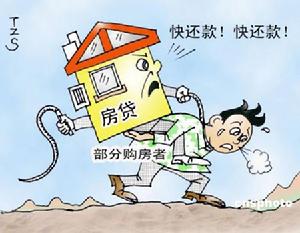Mortgage slave
来自China Digital Space
fáng nú 房奴
A person who spends more than 40% of his or her disposable income on a home mortgage. People may become mortgage slaves by purchasing a house with a very low down payment and spending twenty to thirty of their golden years working extremely hard to afford very high monthly mortgage payments.
The word “mortgage slave” was included in a list of new Chinese words by the Ministry of Education in 2007, demonstrating the extent to which high property prices have become a source of pressure and anxiety for China's lower- and middle-class citizens.
In addition to “mortgage slaves,” there are also “card slaves”, “car slaves”, and “certificate slaves”. These newly coined words reflect an increasing dependence on credit and loans in the pursuit of property, a lifestyle, and education. This trend has also given rise to a wave of shadow lending and cash shortages.
As China has developed rapidly over the past thirty years, the purchasing power of the average Chinese citizen has not kept pace with the lifestyles depicted in advertisements for electronics, property, and luxury goods, which represent freedom and success to many consumers.
Government attempts to stimulate spending in order to grow the economy have also contributed to the problem. The government's vested interest in real estate development, in particular, has contributed greatly to the mortgage slave phenomenon. Many local government officials have been embroiled in land seizure scandals, in which they sold communal land rights to developers for huge profits. National policy has also encouraged real estate development to stimulate the economy, driving prices up beyond the reach of the average citizen.





